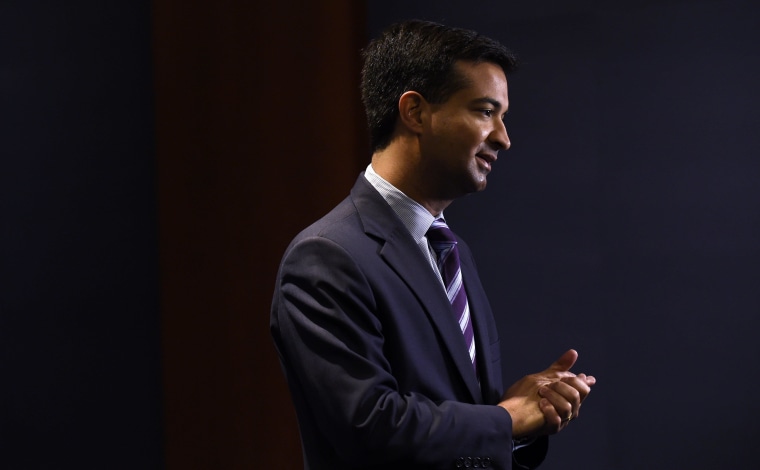WASHINGTON -- Republicans were willing to talk about immigration in their take on the State of the Union - but only in Spanish.
The day after the speech, Republicans were defending the lack of any mention of immigration in their official response in English and the inclusion of immigration in the rebuttal delivered in Spanish.
The speeches didn’t quite produce a water bottle moment like Sen. Marco Rubio, R-Fla., had when he delivered the 2013 response. But it’s questionable whether the GOP made a lot of headway if it hoped to reach Latinos with its responses.
Sen. Joni Ernst, R-Iowa, who gave the English response, “should have spoken in some part about immigration reform,” said Daniel Garza, executive director of the LIBRE Initiative, which seeks to attract Latino voters to conservative causes. Garza suggested a decision might have been made to be discreet about immigration in English because Senate Republicans are still deciding what to do about the immigration reform executive action.
Wadi Gaitan, spokesman for the House Republican Conference, denied any decision was made to include or exclude immigration in the speeches. He said Ernst and Curbelo were given the opportunity to insert their personal narratives and issues they considered important. Gaitan added that a number of other issues of importance were not mentioned in the speeches.
There was trouble with the GOP response before Tuesday. Curbelo was supposed to deliver a translation of Ernst's speech, but that appeared to change following media reports on Ernst's hardline immigration views and English only law support.
There's a trickiness to targeting specific audiences. Latinos are critical and often unresponsive when outreach is no more than translations of English and lacks any cultural tailoring, which can't just be speaking in Spanish because many Latinos in the U.S. are English speakers. But those want to reach Latinos also have to guard against simply telling Latino audiences what they think they want to hear in either language.
Latinos, of course care about more than immigration and some think little about the issue at all, but in polling Latinos often give it higher importance than much of the rest of the population.
Laura Barberena, a political communications consultant in Texas who has worked on national Democratic campaigns, said the speeches were reflective of the mixed messages the GOP has been sending Latinos.
“On the one hand you hear them talk about how important the Latino vote is and that they feel Latino values align more squarely with Republicans,” Barberena said. “But at the same time, they continue to ignore issues that clearly are important to Latinos.”
Politicians on the campaign trail always adjust their messages to their audience, they’ll talk about health care to physicians and something else with pipe fitters, said Stephen Maynard Caliendo, co-director of The Race Project.
But he said Ernst’s and Curbelo’s speeches were billed as "the" Republican responses, so party leaders should have presented a unified message. Different messages on such a key issue in different languages risks the appearance of pandering, even if it’s not intended, Caliendo said.
“It sends a message that non-Spanish speakers don’t have anything to say on immigration, which is bad because it is a national issue,” he said. “They missed an opportunity to build a broad coalition around what is certainly going to be one of the most important issues over the next 12 months."
